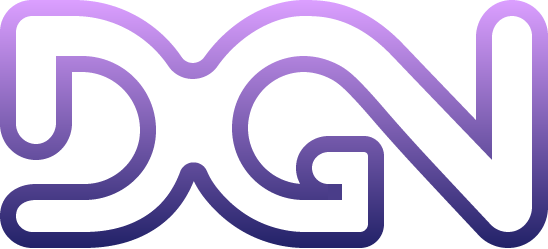The Abu Dhabi Global Market’s (ADGM) Financial Services Regulatory Authority has officially approved Tether’s USDT as an Accepted Virtual Asset (AVA). This milestone decision allows licensed financial service providers within ADGM to offer services related to USDT, facilitating its integration into Abu Dhabi’s regulated financial ecosystem.
This approval covers USDT issued on leading blockchains, including Ethereum, Solana, and Avalanche, aligning with the United Arab Emirates’ strategy to position itself as a global leader in digital finance innovation.
“This decision reflects the UAE’s forward-thinking approach to integrating stablecoins into traditional and digital financial systems,” said an ADGM spokesperson.
Why USDT’s Approval Matters

Tether’s USDT, with a market capitalization exceeding $138 billion, is the world’s largest stablecoin. Its recognition as an AVA strengthens its position in the cryptocurrency market while boosting Abu Dhabi’s ambition to serve as a financial innovation hub.
Stablecoins like USDT play a critical role in bridging traditional finance and the digital asset economy. They provide stability in a volatile market, making them attractive for institutional investors and retail users alike.
Stablecoins in Regulated Finance
ADGM’s decision to integrate USDT into its financial framework comes amidst growing global recognition of stablecoins as essential financial instruments. By enabling USDT services, the ADGM aims to attract a wider range of financial participants and support economic diversification in the UAE.
This approval follows global trends where stablecoins are increasingly seen as a bridge to decentralized finance (DeFi). However, concerns about risk management and market concentration persist.
Regulatory Concerns: A Global Perspective
While ADGM’s decision is a progressive step, it comes against a backdrop of regulatory scrutiny. The U.S. Financial Services Oversight Council (FSOC) has highlighted potential risks associated with stablecoins, including systemic vulnerabilities and exposure to bank runs.
The FSOC recently noted that Tether holds approximately 70% of the total stablecoin market, raising questions about market concentration and its implications for financial stability.
“Strong risk management standards are crucial to address vulnerabilities and ensure the safe integration of stablecoins into the broader financial system,” the FSOC stated in a recent report.
Tether’s Role in Market Growth
Tether has played a pivotal role in driving the growth of the crypto market. In November, the company minted over $5 billion in USDT within just 72 hours, significantly impacting market dynamics.
The minting spree coincided with Bitcoin reaching new highs, demonstrating the influence of stablecoins on market liquidity and trading activity. Following these events, USDT’s market cap surged from $124 billion in early November to $138 billion by mid-December.
Implications for Abu Dhabi’s Financial Sector
With the approval of USDT, Abu Dhabi strengthens its position as a hub for digital finance. The move is expected to attract international players, foster innovation, and expand financial services in the region.
ADGM’s commitment to regulatory compliance and innovation ensures that the integration of stablecoins like USDT will be conducted securely and transparently, setting a benchmark for other jurisdictions.
Multichain Capabilities Enhance Utility
One of the notable aspects of USDT’s approval is its recognition across multiple blockchain networks, including Ethereum, Solana, and Avalanche. This multichain approach enhances USDT’s utility, allowing it to cater to diverse use cases in decentralized finance (DeFi) and beyond.
The ability to operate on various networks also reduces dependency on a single blockchain, ensuring resilience and scalability for future adoption.
The UAE’s Vision for Digital Finance
The UAE has consistently positioned itself as a leader in digital transformation and financial innovation. From adopting blockchain-based solutions to pioneering crypto-friendly regulations, the country is at the forefront of integrating emerging technologies into its economy.
USDT’s approval aligns with this vision, signaling the UAE’s readiness to embrace digital assets and foster a more inclusive financial ecosystem.
Future Outlook: Stablecoins and Beyond
The approval of USDT in Abu Dhabi marks a significant step forward for the adoption of stablecoins in regulated finance. It highlights the potential for collaboration between traditional financial institutions and blockchain technology.
As stablecoins continue to gain traction, their role in facilitating cross-border transactions, enhancing liquidity, and driving financial inclusion will become increasingly important. With Abu Dhabi setting the stage, other financial hubs may follow suit, accelerating the global integration of digital assets.
Key Takeaways
- Milestone Approval: Tether’s USDT becomes an Accepted Virtual Asset in Abu Dhabi, opening doors for regulated financial services.
- Global Integration: The decision aligns with the UAE’s strategy to become a global leader in digital finance.
- Regulatory Context: While stablecoins gain recognition, concerns about risk management and market concentration remain.
- Market Impact: Tether’s recent activities demonstrate the pivotal role of stablecoins in driving liquidity and market growth.
- Future Potential: USDT’s approval underscores the transformative potential of stablecoins in bridging traditional and digital finance.
With this groundbreaking decision, Abu Dhabi solidifies its reputation as a forward-thinking financial hub, paving the way for a future where stablecoins play a central role in global finance.





